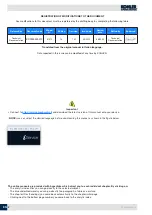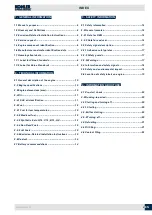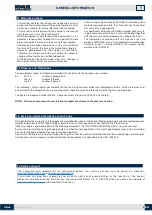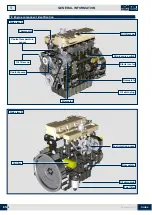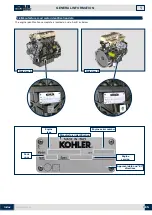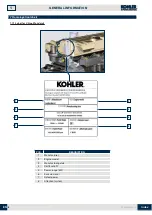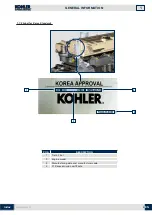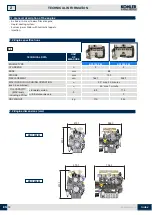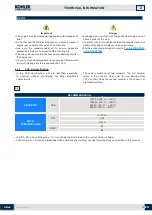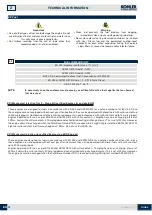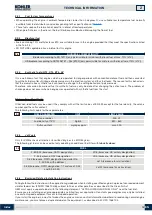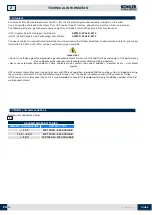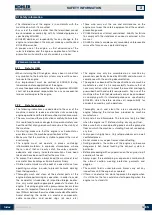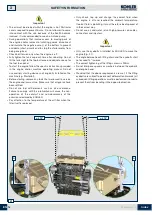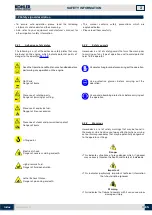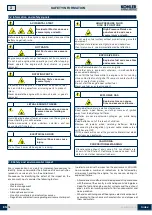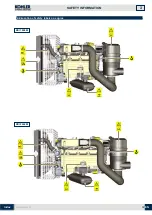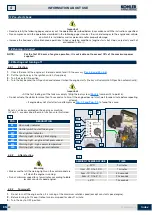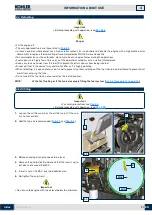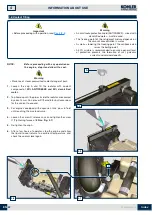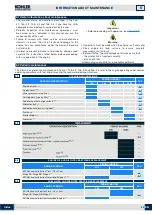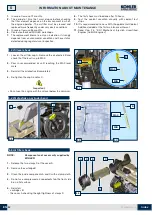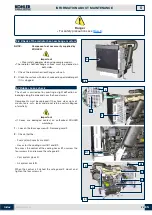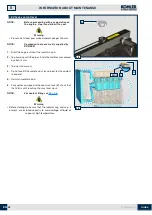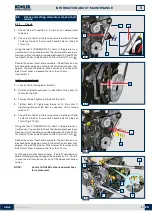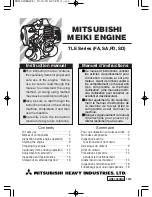
_14
2
12
2.3
EN
KDI Mechanical Injection Tier 3 – Stage IIIA certified Engines (w and w/o EGR)
Those engines are designed for fuels in accordance with EN 590 and ASTM D975 for a cetane number of at least 45. Since
those engines are not equipped with exhaust gas after-treatment, they can be operated with diesel fuels with sulfur content up
to 500 mg/kg (ppm). Compliance with the emission requirements is guaranteed only with sulfur content up to 15 mg/kg (ppm).
Engines operated with fuels as per EN 590 and ASTM D975 with sulfur content < 15mg/kg have an oil changing interval of
500hrs. Fuels with a sulfur content > 500 mg/kg demand a shorter lubricating oil change interval. This is set at 250hrs. However,
the engine oil must be changed when the Total Base Number TBN is reduced to 6.0 mgKOH/g test method ASTM D4739. With
high fuel sulfur content fuel this may happen at 125hrs. Do not use low SAPS oils.
KDI Mechanical Injection Uncertified Engines (no EGR Engines)
Those engines are designed for fuels in accordance with EN 590 and ASTM D975 for a cetane number of at least 45. Since
those engines are not equipped with exhaust gas after-treatment, they can be operated with diesel fuels with sulfur content
up to 2000 mg/kg (ppm).
Engines operated with fuels as per EN 590 and ASTM D975 with sulfur content < 15mg/kg have an oil changing interval of
500hrs. Fuels with a sulfur content > 500 mg/kg demand a shorter lubricating oil change interval. This is set at 250hrs. However,
the engine oil must be changed when the Total Base Number TBN is reduced to 6.0 mgKOH/g test method ASTM D4739.
NOTE:
In a warranty case the customer must prove by a certificate from the fuel supplier that an allowed
fuel was used.
2.5 Fuel
Important
• Use of other types of fuel could damage the engine. Do not
use dirty diesel fuel or mixtures of diesel fuel and water since
this will cause serious engine faults.
• Any failures resulting from the use of fuels other than
recommended will not be warranted.
Warning
• Clean fuel prevents the fuel injectors from clogging.
Immediately clean up any spillage during refuelling.
• Never store diesel fuel in galvanized containers (i.e. coated
with zinc). Diesel fuel and the galvanized coating react
chemically to each other, producing flaking that quickly
clogs filters or causes fuel pump and/or injector failure.
FUEL COMPATIBILITY
EN 590 (biodiesel content max. 7% (V/V))
ASTM D 975 Grade 1-D S15
ASTM D 975 Grade 2-D S15
NATO F-54, equivalent to diesel fuel in accordance with EN 590
EN 590 or ASTM D 975 Grade 1, 2 -D S15 Arctic Diesel
JIS K 2204 No. 1, No. 2
ED0053029510
Index


